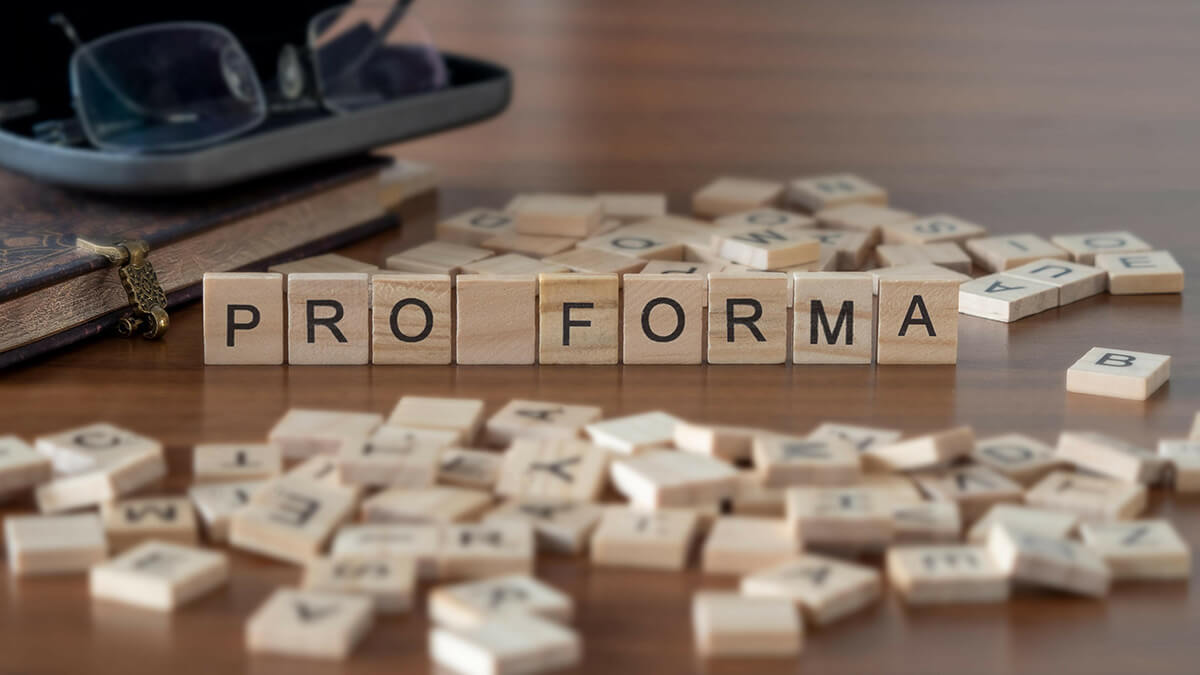It’s always great when a customer buys from your company. But what happens if the customer receives the shipment and realizes there’s something wrong with the order? Maybe the shipping costs are too high or the products aren’t exactly what they want. Whatever the issue may be, you’ve got to put in extra work to keep the customer happy. Luckily, the pro forma invoice can help avoid these problems. So, what is a pro forma invoice?
What is a pro forma invoice?
A pro forma invoice is a preliminary bill of sale sent to buyers before the seller finalizes the sale or delivers goods. Think of a pro forma invoice as the first step in negotiating the final invoice. A pro forma invoice can also help you sell and export international goods.
Even though the pro forma invoice includes an agreed-upon sales price, you can’t use it for accounting purposes or as a legally binding agreement.
Pro forma invoice vs. invoice
A pro forma invoice is different than a formal invoice. A pro forma invoice represents an initial agreement between a seller and buyer and is sent to the customer before the sale is finalized. The primary purpose of a pro forma invoice is to prevent any misunderstandings between the seller and buyer.
A final invoice is an agreement between seller and buyer and is sent immediately after shipping products or goods or completing services. You must use a formal invoice for accounting purposes.
Here’s a guide to the differences between a pro forma invoice vs. invoice.
| Pro Forma Invoice | Invoice | |
|---|---|---|
| What is it? | A preliminary invoice that states the products or services for sale, including price, possible date of delivery, and terms of delivery. | A final invoice that states the products or services purchased by the customer, including the price, delivery terms, and payment terms. |
| Why is it issued? | To provide the customer with details of the proposed sale so they can make an informed decision on how to proceed. They can either agree to the pro forma invoice, negotiate new terms, or stop the sale altogether. | To inform the customer that the sale is complete and that a payment is due. |
| When is it issued? | Issue a pro forma invoice before finalizing the sale or shipping any product. | Issue a final invoice after finalizing the sale (e.g., products shipped and/or services provided) and before payment. |
| Is it negotiable? | Yes. Customers can negotiate the terms of the pro forma invoice. | Yes. The customer can dispute a final invoice. Both parties must agree to any changes before finalizing the sale. |
| How do you record the invoice in your books? | Don’t use the pro forma invoice for accounting purposes. | If you are selling an item and use accrual accounting, record the invoice as accounts receivable (AR). If you are buying the item and use accrual accounting, record the invoice as accounts payable (AP). |
Parts of a pro forma invoice
Pro forma invoice format is similar to a final invoice. In fact, a pro forma invoice includes a lot of the same information as an invoice. To avoid customer confusion, differentiate your pro forma invoice from your final invoice. Your pro forma invoice should include:
- “Pro forma invoice” in a prominent place at the top of the invoice
- Company information
- Customer information
- Pro forma invoice expiration date
- Description of goods (e.g., weight)
- Expected price
- Applicable terms and conditions
- Terms of payment (e.g., cash on delivery)
Unlike a regular invoice, a pro forma invoice doesn’t need an invoice number.
When should you use a pro forma invoice?
Pro forma invoices help create transparency between sellers, buyers, and other parties. You should use a pro forma invoice when you:
- Want to avoid disputed invoices
- Are a freelancer or an independent contractor
- Sell internationally
Avoid disputed invoices
Use a pro forma invoice to avoid invoice disputes with buyers. Pro forma invoices allow the buyer to agree to the purchase as is or negotiate terms. If the buyer doesn’t like the price, quantity, or delivery timeline, they can contact the seller to discuss different terms before finalizing agreements.
Freelancers and independent contractors
If you are an independent contractor, you may have had customers dispute charges on the final invoice. Pro forma invoices can help freelancers and independent contractors make sure their employers know what they are paying for.
Thinking about hiring a freelancer or an independent contractor? Consider asking for a pro forma invoice before you decide on the details of the project. Knowing the exact price can help put everyone at ease.
Buying and selling internationally
Do you sell products internationally? A pro forma invoice can help international buyers:
- Apply for import licenses
- Open a letter of credit
- Purchase another currency when needed
If you are buying international products, you won’t need a pro forma invoice.
Patriot’s online accounting software makes invoicing a snap. Simply create the invoice and print or email it to your customers. Create recurring invoices with a click of a button. And to top it all off, you can customize your invoices by adding your business logo. Try it for free today!
This is not intended as legal advice; for more information, please click here.


